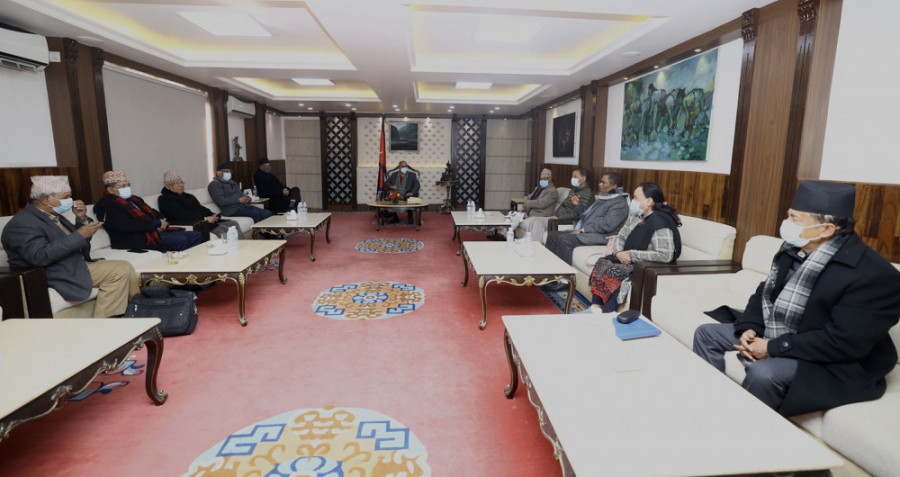Editorial
Marriage of convenience
There is no guarantee that the alliance will remain intact once the parliamentary elections are over.
The endless haggling over the sharing of the first-past-the-post (FPTP) lower house seats in the upcoming November 20 elections has been unseemly as the members of the five-party ruling alliance have put numbers before everything else. The dominant characteristic of the upcoming parliamentary elections this time is set to be a battle for numbers and not a clash of ideologies. In fact, the alliance gives one the impression of a prickle of porcupines huddled together to save themselves from external enemies, but staying far enough not to prick each other. The problem with the alliance partners is worse—they do not even belong to the same genetic group and are bound together by a common goal to garner enough parliamentary seats to form the next government.
While the fundamental principles of democratic politics fail to explain their continued camaraderie after the ouster of the KP Sharma Oli government, the alliance partners scramble to find justification for their continued partnership for seat-sharing. When it was formed in the first half of 2021, in the aftermath of KP Sharma Oli's dissolution of Parliament, the alliance had a very specific political purpose: Defeating the anti-democratic antics of Oli, who had led a brazen attack on parliamentary democracy not once but twice. The alliance successfully created a narrative—and rightly so—that defenestrating Oli was essential to safeguard democracy; the Supreme Court provided a legal imperative to this narrative by showing Oli the exit door.
The alliance was thus a triumph for Nepal's fledgling democracy. But the triumph soon turned into a travesty, and lately even a tragedy, as the alliance partners continue to stick together to put up a combined fight against Oli's CPN-UML in the upcoming elections. The relevance of the alliance was over the day the Supreme Court brought Oli down to size and installed in his place Sher Bahadur Deuba, the leader of the alliance that had sought to stop Oli from doing further damage to parliamentary democracy. However, are they sticking together to achieve a higher democratic ideal or a marriage of ideologies? The answer is a definite "no". They are together for a very specific purpose: Garnering enough seats to keep Oli out in the upcoming elections so that they can form the next government.
But will the bonhomie remain once the Parliamentary elections are over? As of now the alliance partners do not seem to have a clear roadmap for the future after the elections. The alliance is more likely than not to meet the fate of the alliances that have hitherto been formed in Nepal for temporary political gains—a bitter break-up once the interests of a partner or two are fulfilled, or promises broken. And yet, the partners seem confident in their misconception that they are not answerable to the people.
There is no guarantee that the alliance will remain intact once the parliamentary elections are over. Even in the event that the alliance secures majority seats and forms the government, there is no telling if the alliance partners will remain loyal to each other as they become enmeshed in the struggle for power. In such a case, the people who have voted for them will feel betrayed.




 18.12°C Kathmandu
18.12°C Kathmandu














